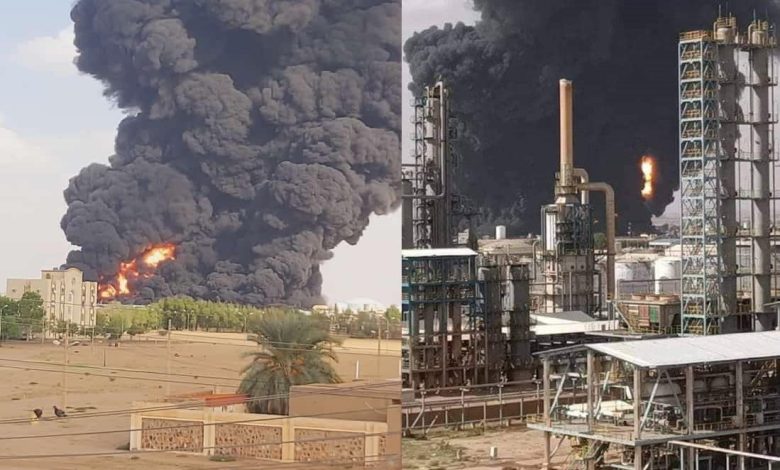Former Minister of Oil Presents Three Options for Operating Khartoum Refinery

Sudan Events – Rehaba Abdullah
Former Minister of Oil, Engineer Consultant Ishaq Bashir Jamaa, stated that maintaining the Khartoum refinery at its current location is not a priority at the moment.
Ishaq Jamaa justified his statement by noting that the refinery is currently not operational due to the lack of crude oil, with production dropping to less than 30,000 barrels per day.
He pointed out that Sudan cannot import crude oil because there is no pipeline, and the railway system cannot transport 100,000 barrels of crude oil per day.
Instead of building a pipeline to the refinery’s current location, Ishaq proposed relocating the refinery to the initially planned site in Rabak and building a pipeline.
He also noted that the storage tanks of the refinery, the General Petroleum Corporation, and distribution company tanks were affected by militia control over the refinery, but the main distillation tower was less impacted.
Ishaq stressed the need for a thorough review of the refinery before work begins, explaining that such an evaluation is standard for petroleum facilities, and is typically done every 330 days of operation.
Ishaq Jamaa revealed that three options for refinery maintenance are being scientifically studied:
1. Maintain the current refinery and study how to secure crude oil.
2. Build a new refinery while adding some parts of the current refinery and relocating the site to Rabak.
3. Build a new refinery in Port Sudan or the Red Sea to facilitate crude oil importation and transportation of local crude via a pipeline.
He confirmed that all these options require studies by a specialized consulting firm and subsequent funding.
Ishaq called on the Ministry of Energy to start early, emphasizing that energy is the backbone of life and development, and shared that there have been ongoing discussions about this matter.
He affirmed that these options need to be compared not only in terms of cost but also in terms of strategic, security, and economic considerations, especially in serving priority sectors.



